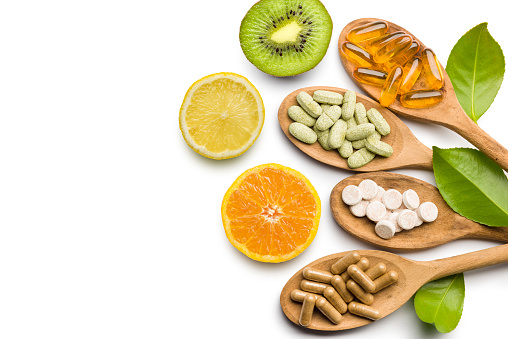
Best Vitamins for Digestive Health
Digestion is the process of breaking down food into nutrients that can be absorbed by the body. It involves various organs, enzymes, hormones, and bacteria that work together to keep your gut healthy and functioning properly. However, sometimes digestion can be disrupted by factors such as stress, diet, medication, illness, or aging. This can lead to symptoms such as bloating, gas, constipation, diarrhea, heartburn, or indigestion.
Fortunately, there are some vitamins that can help support your digestive health and prevent or relieve some of these issues. Here are four essential vitamins that you should include in your diet or supplement regimen for optimal digestion.
Vitamin A
Vitamin A is important for the health of the mucous membranes that line your digestive tract. These membranes act as a barrier against harmful bacteria and toxins that can cause inflammation and infection. Vitamin A also helps regulate immune system responses in the gut and promotes healing of ulcers and wounds.
Some good sources of vitamin A are liver, eggs, dairy products, orange and yellow fruits and vegetables (such as carrots, sweet potatoes, mangoes), and dark leafy greens (such as spinach).
Vitamin C
Vitamin C is a powerful antioxidant that protects your cells from oxidative stress and damage caused by free radicals. It also helps boost your immune system and fight off infections in the gut. Vitamin C also aids in the absorption of iron from plant sources (such as beans), which is important for preventing anemia.
Some good sources of vitamin C are citrus fruits (such as oranges), berries (such as strawberries), peppers (such as bell peppers), broccoli (and other cruciferous vegetables), kiwi fruit (and other tropical fruits).
Vitamin D
Vitamin D is essential for bone health because it helps your body absorb calcium from food. But did you know that it also plays a role in digestion? Vitamin D helps regulate inflammation in the gut and modulate immune system responses to pathogens. It also helps prevent or treat conditions such as irritable bowel syndrome (IBS), inflammatory bowel disease (IBD), celiac disease (gluten intolerance), or colon cancer.
Some good sources of vitamin D are fatty fish (such as salmon), egg yolks (and other animal products), mushrooms (especially if exposed to sunlight), fortified foods (such as milk or cereal). You can also get vitamin D from exposure to sunlight but make sure to protect your skin from sunburn.
B Vitamins
B vitamins are a group of eight water-soluble vitamins that are involved in various metabolic processes in the body. They help convert food into energy; synthesize proteins; maintain nerve function; support red blood cell production; regulate homocysteine levels; etc.
Some B vitamins are especially important for digestion:
– B1 (thiamine) helps break down carbohydrates
– B2 (riboflavin) helps break down fats
– B3 (niacin) helps break down fats
– B5 (pantothenic acid) helps produce stomach acid
– B6(pyridoxine) helps metabolize amino acids
– B7(biotin) helps metabolize carbohydrates
– B9(folate) helps synthesize DNA
– B12(cobalamin) helps absorb vitamin B9
Some good sources of B vitamins are whole grains(bread,pasta,rice); meat(poultry,fish); eggs; dairy products(milk,yogurt); nuts(seeds); legumes(beans,lentils); leafy greens(spinach,kale); fruits(bananas).








